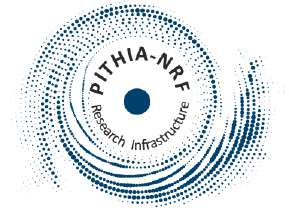The Journal of Space Weather and Space Climate (JSWSC) currently has 3 Topical Issues (TIs) open for submission. Details and practicalities can be found on the related website, with a summary for each TI underneath.
Topical Issue - CMEs, ICMEs, SEPs: Observational, Modelling, and Forecasting Advances
- Deadline: 31 July 2023
- Topic: This TI aims at highlighting recent advances in the study of coronal mass ejections (CMEs) / Interplanetary CMEs (ICMEs) and Solar Energetic Particles (SEPs), and in the forecasting of their space weather impact at Earth and other locations in the heliosphere. Contributed papers may present recent developments in the observational, theoretical, and modelling investigation of CMEs/ICMEs and SEPs, including (but not limited to): ICME propagation in the heliosphere, the interaction of ICMEs with terrestrial and planetary environments, the link between CMEs and ICMEs, the generation and transport of SEPs by CME/ICME-driven shocks, and the forecasting of ICME and SEP occurrence, characteristics, and space weather impacts.
- Topical Editor-in-Chief (T-EiC): Camilla Scolini (University of New Hampshire, USA)
- Topical Editors (TE): Luciano Rodriguez (Royal Observatory of Belgium, Belgium), Sergio Dasso (Universidad de Buenos Aires, Argentina), and Nicolas Wijsen (NASA GSFC and University of Maryland College Park, USA)
Topical Issue - Space Climate: Long-term effects of solar variability on the Earth's environment
- Deadline: 31 August 2023
- Topic: This TI invites all contributions aiming at understanding long-term variability of solar activity and its effects on the heliosphere, the Earth's space environment, atmosphere and climate. This, in particular, includes the following research questions: What are the causes, manifestations and effects of long-term variations in solar activity? How do variations in solar activity, whether continuous or transient, affect the Earth’s space environment, atmosphere and climate system on timescales up to millennia? What are the intricacies in the different datasets used to make inferences about long-term solar variations, like the sunspot number time series and geomagnetic observations? We welcome all manuscripts considering these aspects of Space Climate.
- Topical Editor-in-Chief (T-EiC): Agnieszka Gil (Siedlce University of Natural Sciences and Humanities & Space Research Centre PAS, Poland)
- Topical Editors (TE): Timo Asikainen (University of Oulu, Finland) ; Nat Gopalswamy (NASA Goddard Space Flight Center, USA), and Miriam Sinnhuber (Karlsruhe Institute of Technology, Germany)
Topical Issue - Solar Sources of Space Weather
- Deadline: 30 September 2023
- Topic: We invite contributions on studies that focus on the build-up, origin, triggering, and early dynamics of solar eruptive events, as well as on space weather effects driven by non-eruptive events, such as HSSs that provide better characterization, diagnostics and deeper physical understanding of the solar sources of space weather at Earth and anywhere in the heliosphere. The scope of this topical issue covers both observational and modelling approaches, as well as new techniques and studies on the conditions for moderate to extreme events, which are key to improve space weather predictions.
- Topical Editor-in-Chief (T-EiC): Judith de Patoul (Solar–Terrestrial Centre of Excellence, Royal Observatory of Belgium, Brussels, Belgium)
- Topical Editors (TE): Hebe Cremades (Grupo de Estudios en Heliofísica de Mendoza, CONICET, Universidad de Mendoza, Mendoza, Argentina), Yana Maneva (Solar–Terrestrial Centre of Excellence, Royal Observatory of Belgium, Brussels, Belgium), Erika Palmerio (Predictive Science Inc., San Diego, CA, USA), Li Feng (Purple Mountain Observatory, Chinese Academy of Sciences, Nanjing, China), Tshimangadzo Merline Matamba (South African National Space Agency, Hermanus, South Africa).






